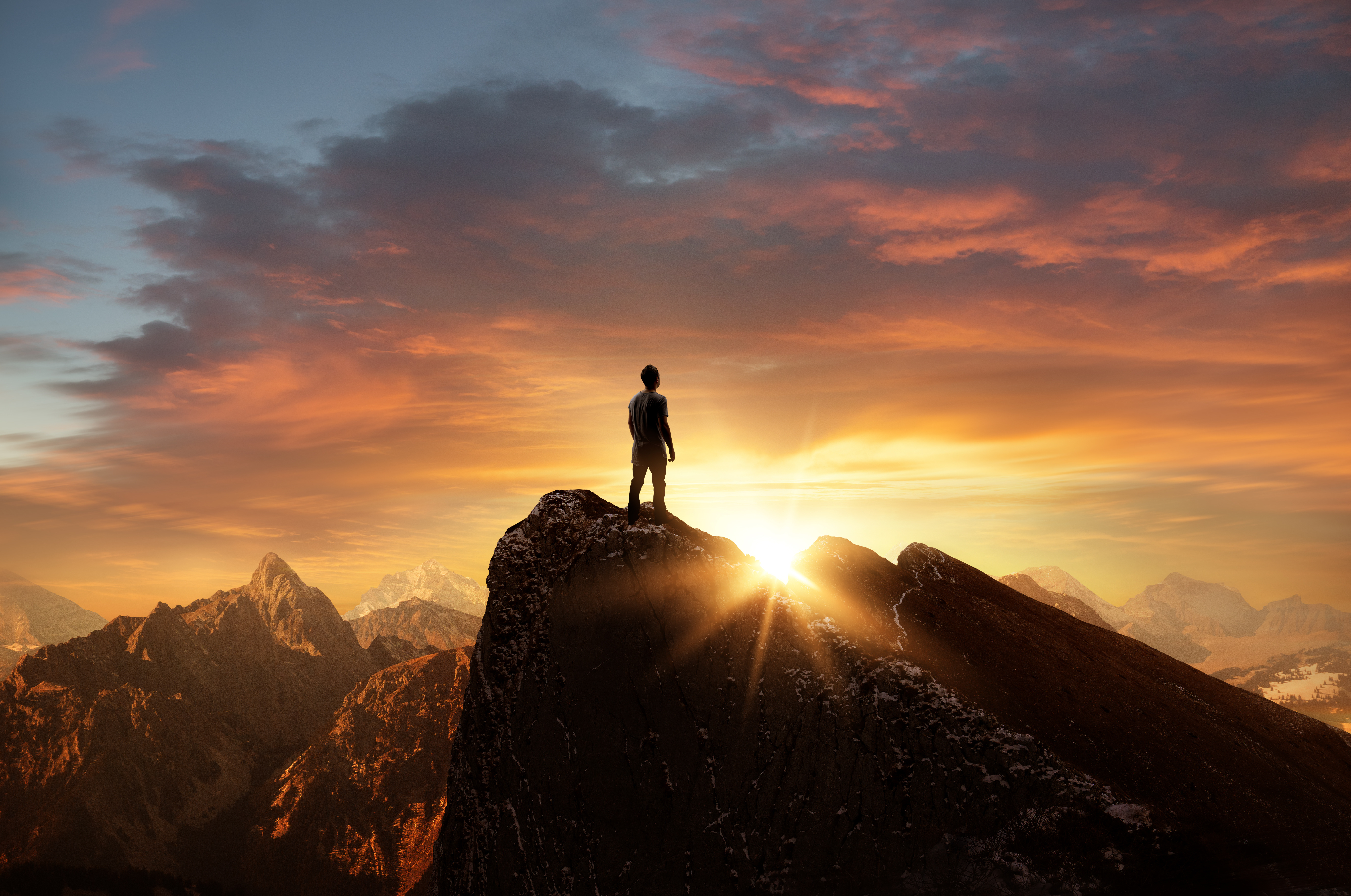Treading on Dreams
In the raw aftermath of October 7th, an ancient story about a young dreamer thrown into a pit speaks directly to Israel's soul-searching moment, where conflicting dreams of what this country should be crash against each other like waves.

“Had I the heavens’ embroidered cloths,
Enwrought with golden and silver light…
I have spread my dreams under your feet;
Tread softly because you tread on my dreams.”
—W.B. Yeats
Dreams are fragile. They shimmer with possibility, carrying the weight of our identity, hopes, and deepest selves. And yet, they are so easily broken.
As a parent, I often think about the dreams my children carry. Now in their twenties and thirties, they walk their own paths, shaping their visions of the world. When they were younger, their dreams seemed bright and untouchable—an artist, a soldier, an adventurer. But adulthood brings the weight of reality. I see how their visions evolve, shaped and sometimes strained by the unyielding weight of reality and the challenges it brings.
As a parent, I want to honor their dreams without imposing my own. But how do you protect someone’s dream without shaping it? How do you step into the sacred space of another’s vision without crushing it under love or fear?
This is not just a question for parents but for all of us—as individuals, a society, a nation. It is also at the heart of the parashiyot that tell Joseph’s story.
Joseph, the dreamer, begins boldly. At seventeen, wrapped in his father’s love and a vivid, multi-coloured coat, he dreams of sheaves and stars bowing before him. He speaks these dreams with the certainty of youth, unaware of their cost.
But his brothers, standing in the same fields, hear his dreams not as hope but as a wound. His visions do not inspire; they isolate. In their pain and anger, they strip him of his coat—the vivid symbol of his father’s love—and throw him into a pit.
Joseph, who failed to tread softly upon the dreams of others, finds himself cast into darkness. Sold into slavery, betrayed, and imprisoned in the depths of Egyptian night, he encounters dreams again—but this time, they are not his own.
The cupbearer and the baker bring him fragile dreams, trembling with uncertainty. These dreams are not proclamations of greatness but questions, cries for clarity in the face of the unknown. And Joseph listens.
The boy who once declared his own dreams now steps into the sacred space of others’ visions. He learns to tread softly, to hold their dreams with care and humility. This transformation is what prepares him to rise.
When Pharaoh summons him, Joseph does not ascend because his dreams are fulfilled. He rises because he has learned to honour the fragile threads of another’s vision.
To dream is a sacred act. To hold someone else’s dream is a sacred responsibility. Treading softly does not mean giving up our dreams but holding them humbly, recognizing that others carry dreams too. This is not weakness; it is strength—the strength to say, “My dream matters, but so does yours.”
In Israel today, the streets pulse with competing dreams. Each side holds its vision—of justice, security, tradition, or progress—so tightly that dreams collide, silencing one voice while asserting another. We are a nation of dreamers, but can we become a nation of listeners?
Joseph teaches that dreams must evolve. His youthful dreams were declarations, bright and blinding, proclaimed without care for how they would bruise others. After his descent into darkness, Joseph learned to tread softly. He discovered that dreams must connect, not divide.
And perhaps October 7th was our pit moment—a descent that challenges us to look beyond ourselves. Like Joseph cast into darkness, this moment calls us to step outside the narrow confines of our own dreams and make space for the dreams of others. It is not about giving up what we hold dear but holding it differently—more humbly, more openly, alongside the sacred dreams of those around us.
Our dreams matter. They carry the fire of our souls, the essence of who we are. But they are not the only dreams. The secular Israeli envisioning equality dreams as fiercely as the religious settler clinging to the land’s sanctity. The Haredi immersed in Torah dreams as vividly as the scientist revolutionizing medicine. The soldier dreams of protection, and the artist dreams of change.
Each dream is sacred. And each dream belongs here.
To hold the dreams of others does not mean surrendering our own but recognizing that the dream of one cannot erase the dream of another. It means listening deeply enough to understand the fears, hopes, and truths carried by others whose visions clash with our own.
Dreaming together requires courage—to resist proclaiming our vision as absolute and to honour the sacred weight of another’s hope. In this moment of profound division, can we move from isolation to unity, from declarations of self to bridges of connection?
Israel was built on the dreams of its people—of redemption, freedom, safety, and home. These dreams are not in opposition; they are threads of the same story. But they must be woven together, not left to pull the fabric of our nation apart.
To dream while holding the dreams of others is not weakness; it is the strength to dream together—not in unison, but in harmony.
May we learn from Joseph to dream boldly and tread softly. And like Jacob, who held the dreams of all his children, may we find the strength to carry both our own dreams and the fragile, sacred dreams of others, allowing them to coexist in a world that holds space for us all.
By Jacob Schimmel